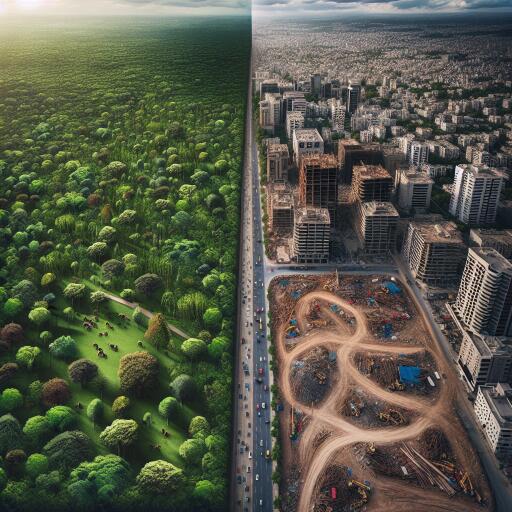
“`html
Rising Deforestation and Construction Reduce Green Spaces in Islamabad: A Crucial Dialogue
Amidst the evolving skyline of Islamabad, a less visible but critical struggle for environmental balance perseveres, challenging the metropolis’s green veneer with pressing concerns of ecological degradation and climate change. The city, beloved for its lush avenues and vast landscapes, now faces the echoing need for ecological preservation and the stride towards a sustainable future.
In a collaborative effort to address these pressing environmental challenges, the Global Neighbourhood for Media Innovation (GNMI) teamed up with the United States Department of State to host a comprehensive Sabz Environmental Journalism Training. This event brought together media professionals from the Islamabad Capital Territory (ICT) with a shared commitment to safeguarding the environment.
The three-day workshop was spearheaded by the esteemed environmental journalist, Afia Salam. Its purpose was clear: to enhance the capabilities of journalists, digital content creators, and filmmakers in climate-conscious reporting. “Environmental journalism is pivotal in fostering awareness and influencing public opinion on pressing environmental issues,” mentioned usnain Raza, GNMI’s Director, highlighting the workshop’s goal to boost climate reporting volume across Pakistan.
Covering a wide array of topics, from the basics of environmental science to the intricacies of digital storytelling and investigative reporting, the training was designed to be as comprehensive as it was enlightening. Participants were immersed in a blend of theoretical knowledge and practical activities, aimed at integrating environmental narratives into their daily reporting efforts.
Expert sessions featured insights from notable figures in media and digital entrepreneurship, including Talha Ahad, founder of The Centrum Media, and Badar Khushnood, co-founder of digital startups Bramerz and Fishry. Their presentations offered fellows invaluable knowledge on leveraging digital platforms for effective environmental journalism.
The event also saw contributions from Dr. Bashir Ahmad of the Pakistan Agricultural Research Council, along with senior journalists and government officials, who discussed the challenges and opportunities in the realm of environmental reporting.
Discussion during the training shed light on the dire environmental transformations in Islamabad, triggered by a rapidly growing urban population. “The city is on the brink of becoming a concrete jungle, overshadowing its once lush landscape,” noted one journalist. The extension of urban sprawl, marked by deforestation in the Margalla Hills and rampant construction activities, heralds increased emissions and shrinking green spaces.
Journalists from prominent media outlets, including the Associate Press Pakistan (APP), Pakistan Television (PTV), Dawn News, and others, shared the platform to learn and discuss. Their participation underscores the industry’s unified approach towards environmental advocacy.
The Sabz Journalism Fellowship Program thus stands as a beacon of hope, aiming not just to educate journalists but also to instil in the public a greater understanding of environmental issues. By promoting investigative and data-driven reporting on climate change, the program aspires to guide Pakistan towards inclusive economic growth and sustainable development through informed digital media narratives.
“`





Leave a Reply